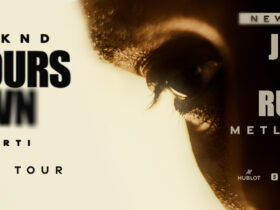Interviews are often viewed as the main component of a job application, a way for companies to see who you are as a person and if you are a good fit with their company, before making the decisive move to hire you. While that may be true, many other aspects of life include interviewing others, and we often overlook them. Interviews can be conducted in a multitude of different ways, and there are specific scenarios under which each could occur.
Interviews are viewed as a more reliable source than resumes or recommendations, as it gives the company a deeper look into who the applicant is as a person. Faking your way through an interview is significantly harder, as well, since it is a live conversation. When given time, applicants are able to think and curate an answer that they believe is most appealing to the organization, regardless of whether it is truthful or not. In a live interview, this luxury is not afforded to applicants, as they do not have much time to think.
As was previously mentioned, job applications are the most common medium under which interviews are conducted. They are used by companies to discuss the qualifications of the applicant for their position, as well as how their personality aligns with the values held by the company.
Another instance where interviews would be conducted similar to job applications, however under a different circumstance, is applying to college. While interviews are not required to get into college, they are often advertised as beneficial to your application, which draws students to partake in them. Students tend to display their achievements in these interviews and paint themselves as the perfect student, out of a sense of fear. This sense of fear comes from the necessity to provide an answer that the conductor of the interview deems acceptable, with the thought of being rejected looming if your answer wasn’t good enough.
Not all interviews elicit the same type of emotions as one for a job application or college may, however. Take journalists, for example, who conduct interviews all the time to get quotes for their articles. When they conduct an interview, the person being interviewed does not feel an obligation to give an answer that makes them feel more intelligent or hirable, and instead focuses solely on providing information that is beneficial and on-topic for the piece that the journalist is writing.
Now that we’ve discussed the different scenarios under which interviews can be conducted, and how people respond to them, we can go over the most popular ways that interviews are conducted.
Structured interview
A structured interview consists of a series of predetermined questions that are asked to each person, regardless of their answer. Since the same questions are being asked to all candidates, their responses to the questions is the sole component that they are being compared upon.
Unstructured interview
An unstructured interview does not include a set of predetermined questions, and instead uses one or two questions to build the conversation off of, and proceed with the interview from there. However, the person being interviewed chooses to respond to the question, determining the direction that the interview will go in, and what questions will be asked. Since not all the same questions are being asked to each candidate, the responses won’t all be the same, forcing the people conducting the interview to find a different way to compare responses.
Panel interview
A panel interview is when multiple people interview someone at the same time. Typically, panelists will take turns interviewing, observing the person’s behavior when they are not interviewing them. Panel interviews are used so that multiple interviewers are able to assess the drive of a candidate, and if they are a good fit for the organization.
While these are just some of the most common types of interviews, there are others used. Some examples include:
- Stress interview
- Off-site interview
- Case interview
Interviews can be conducted in many unique ways, and the behaviors of the people being interviewed can be impacted by the ways in which the person conducting the interview decides to structure it. Considering the many ways that the structure of an interview can influence the person’s thoughts and actions is important to how the interview should be conducted.











